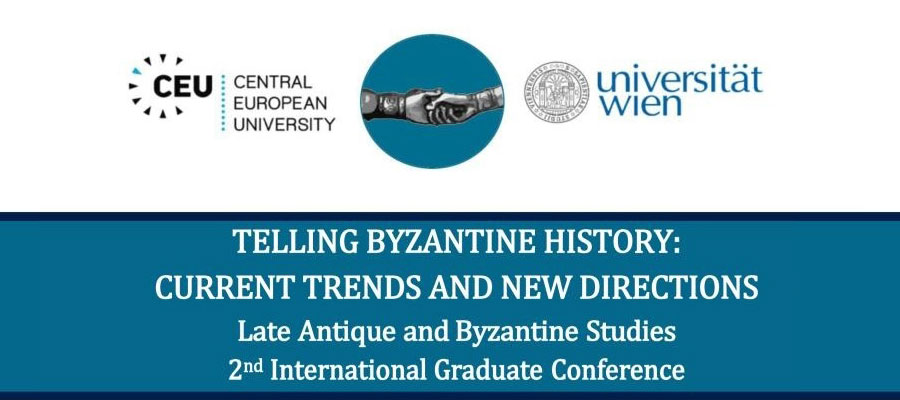Telling Byzantine History: Current Trends and New Directions, Late Antique and Byzantine Studies 2nd International Graduate Conference, Vienna, May 24–25, 2024
It is not particularly controversial to observe that the history of the Byzantine Empire has, for the most part, been told through a distinct lens. Despite its linguistic, cultural, and geographical variety, and its numerous social and political transformations, Byzantium has been constructed normatively as a Greek speaking, Orthodox Christian, and Constantinopolitan entity, through a hierarchical selection of perspectives and source material which has generated a received narrative that has come to form the bedrock of scholarship in the field of Byzantine Studies.
However, in the light of new seminal publications, namely J. Preiser-Kapeller’s Byzanz: Das Neue Rom und die Welt des Mittelalters (C.H.Beck, 2023), A. Kaldellis’ The New Roman Empire: A History of Byzantium (OUP, 2023), M. Ivanova’s & B. Anderson’s Is Byzantine Studies a Colonialist Discipline? (PSUP, 2023), and P. Agapitos’ Byzantine Literature, AD 300–1500: A Narrative History (in preparation), it is clear that the way in which we tell Byzantine history is undergoing significant change. Through the application of new critical approaches including race and identity theory, gender studies, colonialism, multilingualism, environmental and global history; by reassessing source material and introducing understudied or neglected evidence in non-Greek languages, such as Arabic, Armenian, Latin, Georgian, Syriac, Slavic, amongst others; through re-evaluation of the historical form and function of narrative; and through the critical evaluation of the Eurocentric institutional framework of Byzantine Studies, scholarship is consciously giving thought to exploring new ways of telling Byzantine history and emphasising its applicability in the globalised postmodern age.
The 2nd International Late Antique and Byzantine Studies Graduate Conference, co-organized by the University of Vienna and Central European University, thus aims to explore the question of how we tell Byzantine history today. We welcome submissions which seek to deconstruct old, or propose new ways, of telling Byzantine history, either through the novel use of sources, or through the application of methodological, theoretical, and interdisciplinary approaches which can provide new directions in the study of Byzantium.
Possible topics may include but are not limited to:
- Eurocentric vs global views on Byzantine history & literature
- (De)colonising Byzantium
- Byzantium in the museum, and in contemporary art and art history
- Byzantium in popular media
- The history of Byzantine Studies then and now – 19th century till today
- Interpreting non-Constantinopolitan source narratives of Byzantium
- Using marginalised narratives of Byzantium
- Interpreting historical forms and functions of narration in a multi-lingual milieu
We invite applications from graduate students at MA and PhD level.
Keynote speakers: Panagiotis Agapitos and Johannes Preiser-Kapeller
